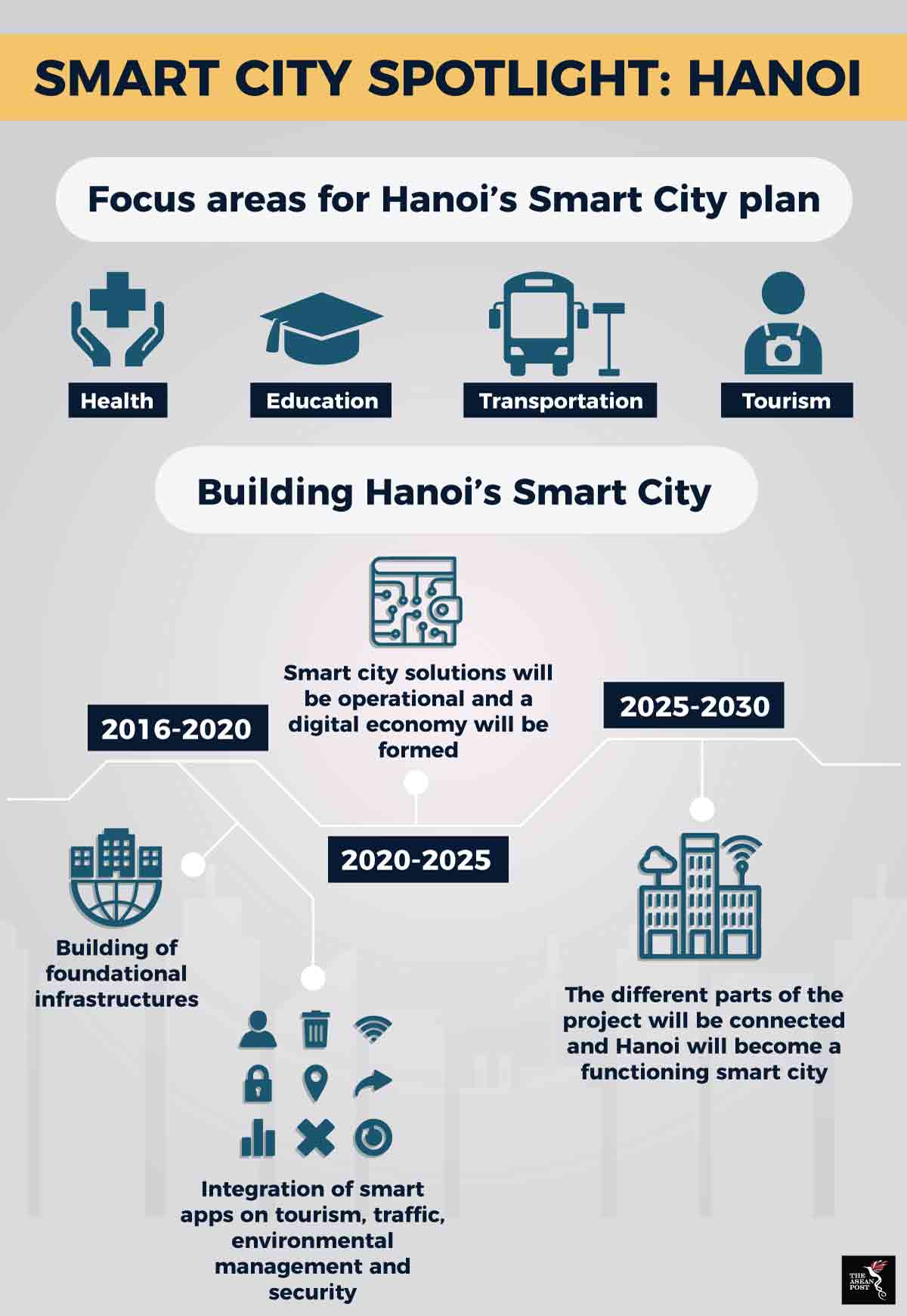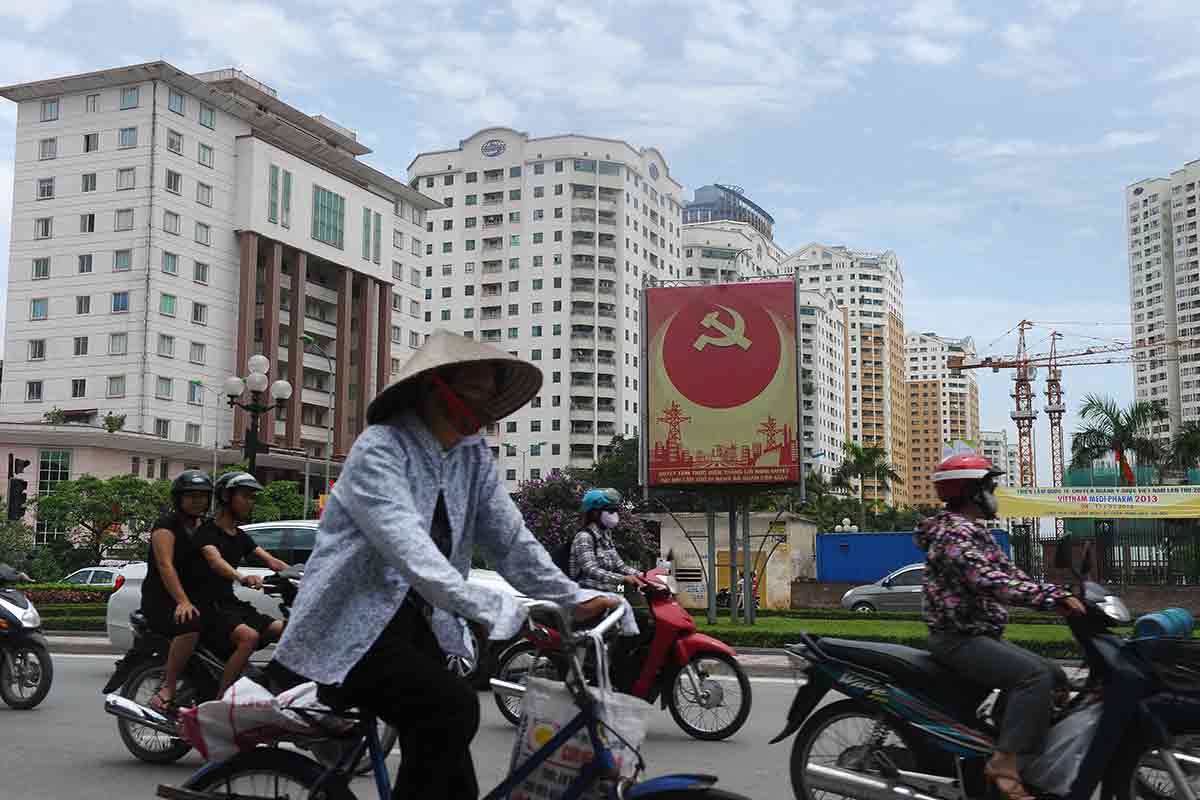Hanoi is a city rich in history and culture that has been occupied by foreign forces in the past. From being ruled by ancient Chinese dynasties and the French in the 19th century to surviving a war with the United States (US). Because of its chequered past, the city has unique characteristics – its buildings and food are influenced by the French while its culture has been influenced by the Chinese.
Today, Hanoi is undergoing another major transformation. The bustling city is about to enter the 21st century by becoming a smart city. Plans of transitioning Hanoi into a smart city have been in the works since 2016, however it was only at this year’s ASEAN Summit in Singapore that it was officially inducted into the ASEAN Smart Cities Network (ASCN). Hanoi joins 25 other ASEAN cities that have been selected to pilot the project.
Hanoi’s potential
The decision to transform Hanoi into a smart city seems logical as it is the capital of Vietnam. Furthermore, Hanoi is a thriving city. In a PwC report, Hanoi was identified as one of the fastest growing cities in the world in terms of gross domestic product (GDP) growth. At the same time, Hanoi’s population is also growing, and with that the younger population is increasing too. Currently, approximately 40 percent of the country’s population is less than 25 years old and many of them are expected to move to Hanoi in search of better economic opportunities.
On the technology side, Hanoi is currently home to the region’s burgeoning startups. Data from foreign direct investment (FDI) practice Dezan Shira & Associates’ Vietnam Briefing shows that 39,580 start-ups entered the Vietnamese market in the first four months of 2017 alone with many of them based in Hanoi.
This points to a perfect storm brewing in the city. With economic success, a growing young population and a rising tech sector, Hanoi presents itself as the ideal smart city candidate.
Building a smart city
According to local media, Phan Lan Tu, director general of the Hanoi Department of Information and Communications has outlined four key areas as the foundation of Hanoi’s smart city transformation by 2030.
The four sectors identified by Phan Lan Tu are health, education, transport and tourism. Work on developing these four areas has already begun in 2017.

Source: Various
As part of its urban transportation plan, Hanoi has implemented an "iParking" app in selected districts. The app helps users search for vacant parking bays in the city and allows them to pay for parking through their mobile devices. The app will soon be deployed throughout Hanoi. The city is also working on a digital traffic map to ease traffic congestion.
In the education sector, 2,700 schools and universities are being integrated into an online system where school reports and enrolment data can be easily accessible online.
To achieve smart city status by 2030, the government there has divided the process into three stages. The first stage, taking place from 2016-2020, will see the development of foundational infrastructures for a smart city such as building the technology and integrating it within Hanoi. From 2020 to 2025, the focus will be on making this technology functional and establishing the city’s digital economy. In the final phase, 2025 to 2030, the different stages of the project will be integrated and result in Hanoi becoming a fully functioning smart city.
Vietnam’s ambitious plan has already attracted a number of investors. Earlier this year, a joint venture between BRG Group and Sumitomo Corporation resulted in a US$4 billion investment for the smart city project. The project will cover 272 hectares and will be built in five phases. In addition to that, Hanoi’s city council has increased its budget to US$127 million from the initial US$54 million to help implement its smart city plans.
Many observers may point to Singapore as an example for ASEAN cities to emulate if they want to become a smart city. Hanoi however is unlike Singapore. It is less integrated, less affluent and not as technologically advanced – much like many other cities in the ASCN. Despite that, it is well on its way to becoming a smart city due to proper planning. Consequently, Hanoi, not Singapore, is ASEAN’s example of how best to transform into a smart city.
